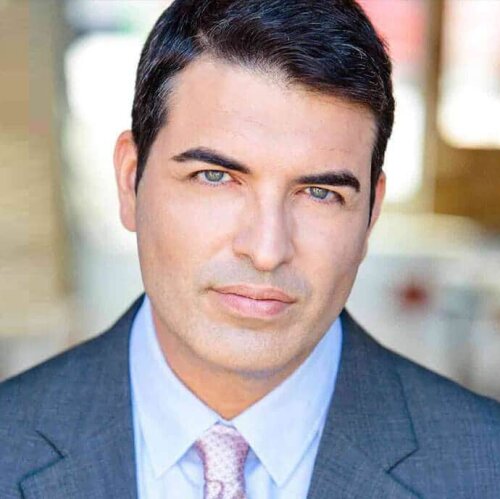Best Criminal Litigation Lawyers in California
Share your needs with us, get contacted by law firms.
Free. Takes 2 min.
Or refine your search by selecting a city:
List of the best lawyers in California, United States
About Criminal Litigation Law in California, United States
Criminal litigation in California refers to the legal process where the state prosecutes individuals or organizations accused of violating the law. This area of law covers everything from investigation and arrest to trial and sentencing. In California, criminal cases are primarily governed by the California Penal Code, supplemented by relevant federal laws. The process aims to ensure both public safety and the protection of individuals' constitutional rights. Criminal litigation involves various stages, including arraignment, pretrial motions, discovery, trial, and possible appeals. The complexity of California's justice system makes understanding your rights and responsibilities essential if you are involved in any criminal matter.
Why You May Need a Lawyer
If you are facing criminal charges, it is crucial to seek legal representation. Lawyers provide vital guidance at every stage, from the moment of arrest onward. Common situations where legal help is essential include being investigated for a crime, being arrested, charges being filed against you, or if you are called in for questioning by law enforcement. Even misdemeanor charges can have long-lasting impacts on your record, employment, and personal life. Lawyers can negotiate plea bargains, challenge evidence, protect your rights during police interactions, and represent you in court. Without legal assistance, you risk unfair treatment, harsher penalties, or a misunderstanding of your options.
Local Laws Overview
California has unique aspects of criminal law that differ from other states. Some key features include the three-strikes sentencing law for repeat offenders, mandatory sentencing guidelines, and special legal defenses such as Proposition 47, which allows certain felony charges to be reduced to misdemeanors. The state also has specific laws for issues like drunk driving (DUI), domestic violence, gang-related offenses, and juvenile crimes. California law emphasizes both rehabilitation and punishment. Additionally, bail procedures, discovery rules, and the right to a speedy trial are enforced under state statutes and court precedents. Understanding these nuances is important for anyone involved in criminal proceedings.
Frequently Asked Questions
What is the difference between a misdemeanor and a felony in California?
A misdemeanor is a less serious crime that usually carries a sentence of up to one year in county jail, while a felony is a more serious offense that can result in longer prison sentences. The classification affects both the legal process and potential penalties.
What should I do if I am arrested?
Remain calm, ask for a lawyer, and exercise your right to remain silent. Do not answer questions from law enforcement until your lawyer is present. Anything you say can be used against you in court.
How is bail determined in California?
Bail amounts are set based on the severity of the alleged crime and the individual's flight risk. In some cases, you may be released on your own recognizance, meaning you promise to appear in court without paying bail.
Can criminal charges be dropped or reduced?
Yes, charges can sometimes be dismissed or reduced through plea bargaining, successful defense motions, or lack of evidence. A lawyer can evaluate your case and negotiate with the prosecutor on your behalf.
What happens during a criminal trial?
During a trial, both sides present evidence and arguments before a judge or jury. The prosecution must prove guilt beyond a reasonable doubt. The defendant has the right to challenge evidence and call witnesses.
What are my rights during police questioning?
You have the right to remain silent and not incriminate yourself. You may also request legal representation at any point during questioning.
How do juvenile cases differ from adult cases?
Juvenile cases are handled in a separate court system focused on rehabilitation rather than punishment. There are different procedures and confidentiality rules for minors charged with crimes in California.
What is the three-strikes law?
California's three-strikes law imposes harsher sentences on repeat offenders convicted of three or more serious felonies. The third strike can result in a sentence of 25 years to life in prison.
Can records be expunged in California?
In some cases, individuals may petition the court to have certain misdemeanor or felony convictions expunged or sealed, which removes them from public view and helps with employment prospects.
Do I need a lawyer for a minor offense?
Even for minor charges, a lawyer can provide critical advice, help minimize penalties, and ensure your rights are protected throughout the process. Self-representation increases the risk of negative outcomes.
Additional Resources
- California Courts - Access information about the court process, case lookup, and self-help materials related to criminal law. - California Department of Justice - Offers information on criminal records, victim services, and state laws. - State Bar of California - Source for finding licensed attorneys and legal aid services. - California Innocence Project - Organization focused on helping individuals who have been wrongfully convicted. - Local Legal Aid Clinics - Many counties offer free or low-cost consultations for those facing criminal charges.
Next Steps
If you or someone you know is involved in a criminal case in California, take immediate action. Start by gathering all documentation related to your case, such as police reports, court notices, and bail papers. Do not discuss the details of your case with anyone except your lawyer. Contact a qualified criminal defense attorney as soon as possible to review your case, discuss your options, and develop a legal strategy. If you cannot afford a private lawyer, request a public defender. Understanding your rights and getting professional representation is the best way to protect your future and ensure the best possible outcome in criminal litigation matters.
Lawzana helps you find the best lawyers and law firms in California through a curated and pre-screened list of qualified legal professionals. Our platform offers rankings and detailed profiles of attorneys and law firms, allowing you to compare based on practice areas, including Criminal Litigation, experience, and client feedback.
Each profile includes a description of the firm's areas of practice, client reviews, team members and partners, year of establishment, spoken languages, office locations, contact information, social media presence, and any published articles or resources. Most firms on our platform speak English and are experienced in both local and international legal matters.
Get a quote from top-rated law firms in California, United States — quickly, securely, and without unnecessary hassle.
Disclaimer:
The information provided on this page is for general informational purposes only and does not constitute legal advice. While we strive to ensure the accuracy and relevance of the content, legal information may change over time, and interpretations of the law can vary. You should always consult with a qualified legal professional for advice specific to your situation.
We disclaim all liability for actions taken or not taken based on the content of this page. If you believe any information is incorrect or outdated, please contact us, and we will review and update it where appropriate.
Browse criminal litigation law firms by city in California
Refine your search by selecting a city.














